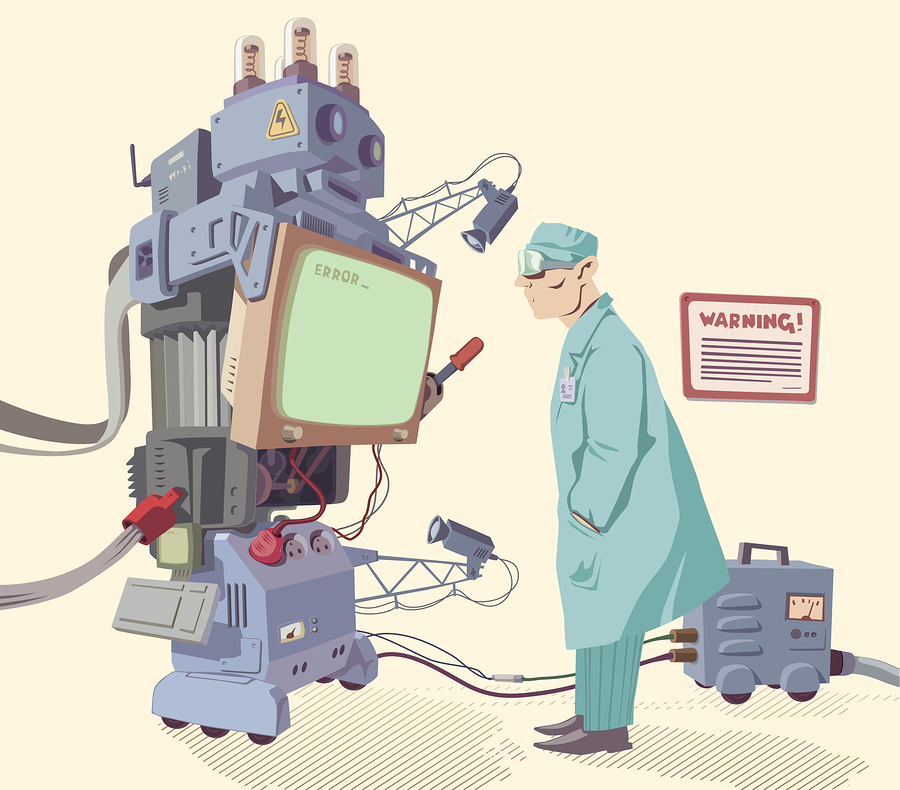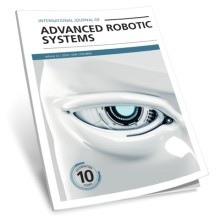
Robohub.org
Robotic assistants: Science meets fiction, with Carme Torras

The scientist is looking at the error message of the giant robot’s operating system.
In this video lecture Carme Torras, Research Professor at the Spanish Scientific Research Council (CSIC) looks at the process of working on assistive robots employed as helpers to disabled or elderly people, shopping helpers, cleaning aids, even co-workers in workshops and factories. Her research in the Perception and Manipulation group focuses on enhancing the perception, learning, and planning capabilities of robots in human environments.
Torras features several key issues in her lecture: safety in home environments, capability to manipulate with deformable objects (for example, clothes), tolerance to inaccurate actions, goal-directed executions, and capability to actively collaborate with humans. One of the main challenges of developing assistive robots are system adaptations for ‘non-experts’ to program the robots.
The final part of her lecture tackles the debate concerning assistive robotics, asking: what are the ethical and social implications for having robots in people’s lives . How will human nature change with increasing H-R interaction? Her answer leads into science fiction and current depictions between robots and humans in popular culture.

Credits: Institut de Robòtica
Informàtica Industrial, CSIC-UPC
Carme Torras is Research Professor at the Spanish Scientific Research Council (CSIC). She received M.Sc. degrees in Mathematics and Computer Science from the Universitat de Barcelona and the University of Massachusetts, Amherst, respectively, and a Ph.D. degree in Computer Science from the Technical University of Catalonia (UPC). Prof. Torras has published five books and about two hundred papers in the areas of robot kinematics, computer vision, geometric reasoning, machine learning and manipulation planning. She has been local project leader of several European projects in the frontier between AI and Robotics, among which the FP6 IP project “Perception, Action and COgnition through Learning of Object-Action Complexes” (PACO-PLUS), and the FP7 STREP projects “GARdeNIng with a Cognitive System” (GARNICS) and “Intelligent observation and execution of Actions and manipulations” (IntellAct).
She was awarded the Narcís Monturiol Medal of the Generalitat de Catalunya in 2000, and she became ECCAI Fellow in 2007, member of Academia Europaea in 2010, and member of the Royal Academy of Sciences and Arts of Barcelona in 2013. Prof. Torras was IEEE RAS Associate Vice-President for Publication Activities (2012-13) and she is currently Editor of the IEEE Transactions on Robotics.
Torras C. IJARS Video Series: Robotic Assistants: Science meets Fiction [online video]. International Journal of Advanced Robotic Systems, 2016, 13:V1. DOI: 10.5772/62467
tags: assistive robots, c-Education-DIY, IJARS




